Roberta Eaton, aka Robbie Cheadle, shares the final post on the beliefs and myths of her home. Other posts in the series can be found by cicking here: Part One, Part Two, Part Three, Part Four and Part Five.
Myths and beliefs of southern Africa – The Sotho-Tswana people
This is the last post in this myths and beliefs of southern Africa series and is about the Sotho-Tswana people of southern Africa is largely comprised of the South Sotho (Basuto and Sotho), the West Sotho (Tswana) and the North Sotho (Pedi) people.
Most Sotho people were historically herders of cattle, goats and sheep and growers of grains and tobacco. The Sotho people were also recognised for their metal and leather work as well as their wood and ivory carving.
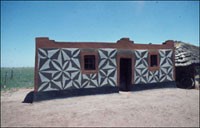
Flat roofed dwelling, built by Basotho farmers near Bloemfontein. Picture from https://www.sahistory.org.za/article/sotho-south-sotho-or-basotho
The Sotho people live largely in Lesotho and South Africa and as a combined group are the second largest ethnic group in South Africa.
Names in Sotho generally have meanings that express the values of the parents or the community. Common personal names include Lehlohonolo (Good Fortune), Mpho (Gift) and Mma Thabo (Mother of Joy). Individuals may also be named after events, such as a rain storm, or after clan heroes.
Religious beliefs
The Sotho traditionally believe in Modimo who created the world and then withdrew to Heaven. He no longer concerns himself with life on earth. Modimo is not worshipped directly but though the ancestors.
The belief in ancestors is central to Sotho traditional religion. The ancestors are believed to have an influence over the daily lives of their direct descendants. Each family is under the direct guidance of its own descendants while the tribe, as a whole, is under the guidance of the ancestors of the chief.
Death, the Spirit and the Afterlife
The Sotho-Tswana believe that after death the spirit passes to the next phase of life. They traditionally believe that the physical body (mele) is entirely corporal and the incorporal spirit (moea meaning wind or serili meaning shadow) just occupies the physical body for the period until its death.
The Sotho-Tswana have some unique traditional beliefs regarding the spirit, as follows:
- Although it is generally invisible, the spirit can occasionally be seen in dreams or visions;
- During an induced trance, a witchdoctors spirit can wander away from his body if it wants to;
- During his lifetime, a man’s spirit may be seen as a second shadow. Such sightings usually occur at sunset when the spirit separates itself from the body’s ordinary shadow;
- At the moment of death, the spirit may be fleetingly seen, but it will never be seen clearly;
- Disruptions to the normal functioning of the mind, such as hysteria and a poor mental state, occur when the spirit becomes confused and distressed due to sorcery or deeds of departed spirits;
- The spirit of a dead person is said to hover close to the body from which it has departed, even during the burial. The spirit is not released to the ancient tribal home of the spirits, Ntsuanatsatsi, until the internment rites are completed. When these are completed the spirit rises to its feet. The body is buried in a crouching position to facilitate the spirit’s departure.
Totems
In sotho-Tswana society, each member has a totem with is usually an animal. Totems are inherited from the father and are treated with reverence and respect. It is important not to eat your totem.

Picture from: http://www.krugerpark.co.za/africa_crocodiles.html
A Sotho poem from Lesotho, in praise of the crocodile, is set out below:
The crocodile is the invoker of the rain waters,
The black one of the pool,
The black black one lying on the water slime;
It is the crocodile of the pool
The biter, I go about hunting for prey.
Son of the father of pools, to whom tribute is paid,
to the lords of the rivers,
To the lords of the rivers, the hippo and the crocodile;
The great torrents of rain will come thundering down.
It is the black crocodile of the pool,
The crocodile that drags down a beast into the depths,
It drags the beast into the dark depths;
The crocodile has jammed the beast down in a fork,
It has taken the beast into the dark depths.
The owners of the beast peer over and down into them,
They open out the rushes and willows,
They think they are looking right into the pool;
It is the pool into which the beast has disappeared.
It is the black crocodile, of Modiane of Tau,
Of those of Moxopa-a-dira, the Robber of his enemies.
The crocodile stays down in the weeds with the beast,
It is still down in the dark pool with it;
It is the one that cannot be drowned, of Mmamolemana,
Crocodile that must not be poked with a reed,
though born in the reeds;
Cruel one, killer while laughing,
The crocodile is the laughing teeth that kill,
for anger slays no man.
Poem sourced from:
http://africanpoems.net/survival/crocodile/
S.M. Lekgothoane from ‘Praises of Animals in Northern Sotho’
195 & 197 Bantu Studies 12 (1938)
Witwatersrand University Press
Sources
Wikipedia
www.sahistory.org.za
South African History Online
Myths and Legends of southern Africa by Penny Miller
http://africanpoems.net/survival/crocodile/
https://buzzsouthafrica.com/famous-facts-about-tswana-people-culture-and-language/
 About the author
About the author
Robbie, short for Roberta, is an author with five published children’s picture books in the Sir Chocolate books series for children aged 2 to 9 years old (co-authored with her son, Michael Cheadle), one published middle grade book in the Silly Willy series and one published preteen/young adult fictionalised biography about her mother’s life as a young girl growing up in an English town in Suffolk during World War II called While the Bombs Fell (co-authored with her mother, Elsie Hancy Eaton).
All of Robbie’s children’s book are written under Robbie Cheadle and are published by TSL Publications. Robbie has recently branched into adult horror and supernatural writing and, in order to clearly differentiate her children’s books from her adult writing, these will be published under Roberta Eaton Cheadle. Robbie has two short stories in the horror/supernatural genre included in Dark Visions, a collection of 34 short stories by 27 different authors and edited by award winning author, Dan Alatorre. These short stories are published under Robbie Cheadle.
Find and follow Roberta Eaton
Roberta Writes Blog Twitter Facebook
While the Bombs Fell
What was it like for children growing up in rural Suffolk during World War 2?
Elsie and her family live in a small double-storey cottage in Bungay, Suffolk. Every night she lies awake listening anxiously for the sound of the German bomber planes. Often they come and the air raid siren sounds signalling that the family must leave their beds and venture out to the air raid shelter in the garden.
Despite the war raging across the English channel, daily life continues with its highlights, such as Christmas and the traditional Boxing Day fox hunt, and its wary moments when Elsie learns the stories of Jack Frost and the ghostly and terrifying Black Shuck that haunts the coastline and countryside of East Anglia.
Includes some authentic World War 2 recipes.
Robbie also writes as Robbie Cheadle
Robbie’s Inspiration Blog Goodreads Facebook YouTube
Amazon author page Twitter: @bakeandwrite
 Books by Robbie and Michael Cheadle
Books by Robbie and Michael Cheadle
The Sir Chocolate books are a delightful marriage of story, verse and cookery
… a perfect recipe for sharing with children. Silly Willy goes to Cape Town tells the adventures of two very different brothers…and includes five party cake ideas.
You can purchase the Sir Chocolate books from:
or you can buy them in South Africa directly from the authors by emailing Robbie Cheadle at sirchoc@outlook.com.

Tell me a story… 
If you are a writer, artist or photographer…If you have a poem, story or memoirs to share… If you have a book to promote, a character to introduce, an exhibition or event to publicise… If you have advice for writers, artists or bloggers…
If you would like to be my guest, please read the guidelines and get in touch!


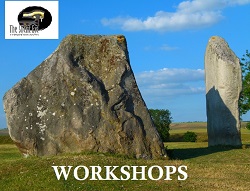

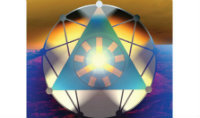

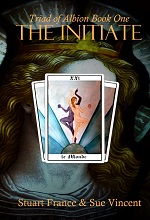


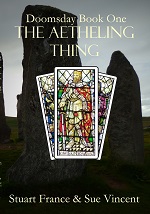
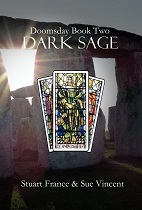
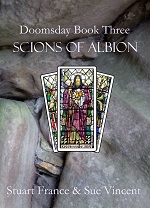
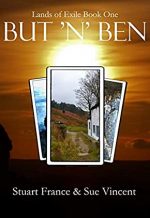






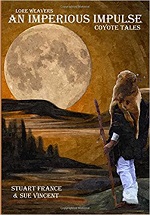


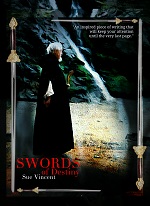

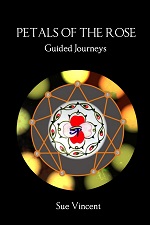


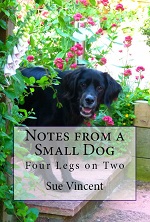



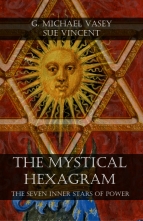

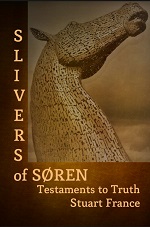


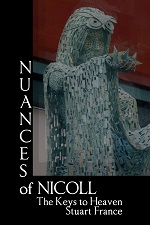


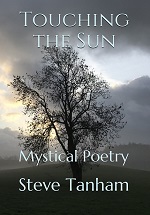

Pingback: Guest author: Roberta Eaton ~ Beliefs and myths of southern Africa VI: The Sotho-Tswana people — Sue Vincent’s Daily Echo – All About Writing and more
Love the vivid poem about the crocodile. My totem must be sugar, for I should not eat it. All kidding aside, it is terrific to learn of the way of people who live so differently than what I am used to. And I must say, it has always confused me as to why Missionaries felt/feel the need to go “save” tribal peoples from their life styles. There people seem rather settled in their lives.
LikeLiked by 4 people
I think lots of people need to be saved from sugar, Annette. A mixed blessing that particular substance. The missionaries wanted to save their souls as, in the eyes of the Western Church, they were atheists. Christianity is the predominant religion of most of the southern African people now.
LikeLiked by 2 people
I’m afraid I agree with Annette … though I understand the position of the missionaries. Just because we believe in and live by our own path or faith, it doesn’t mean we are right.
LikeLiked by 2 people
I do agree with you, Sue. The mentality at the time was that there was only one way, the Western way. It is really to late now as many of the old ways are disappearing as people congregate in cities and live a modern life.
LikeLike
Ironically, so is the religious fervour that was carried by the early missionaries.
LikeLiked by 1 person
Indeed; much of what they believe in makes a lot more sense than the mumbo-jumbo dished out by those Missionaries. A pity they did the dishing so convincingly, opening the door for evangelical crooks.
LikeLike
I respect your disbelief and do not myself subscribe to the dogma of the Church, but for others here, the Christian faith is the centre of their lives. Please treat their faith with respect on these pages even if you disagree with their beliefs.
LikeLiked by 1 person
I cannot respect anything patently ridiculous or leading to so much suffering and conflict. Such things, along with matters like cruelty to animals, should be vigorously condemned at each and every opportunity rather than condoning them under the pretext of ‘respecting faith’.
LikeLike
I am requesting that you treat the faith of individuals with respect, as it sustains many good people as well as misleading others. After all, none of us know all the answers. If that seems inappropriate, then please respect my views that on these pages, everyone should be treated with respect. I do not wish to start deleting comments, as it is from disagreement that understanding may be reached… but I will not have these pages become a place where people feel ridulculed, belittled or subject to prejudice.
LikeLike
I completely respect all faiths that do not include despicable practices and are not forced upon others. I’m sorry, but if I have to avoid any negative comment on those that do fall into such categories, then I must regretfully avoid visiting these pages. As I have said, silence on such matters is tantamount to condoning them, and that is an unacceptable option.
LikeLike
I do not condone such practices and will myself speak out against them. Nor am I a fan of force-fed dogma… genuine faith has to come from within, not through indoctrination. I will, however, continue to defend the right of others to follow whatever faith speaks to their heart.
I welcome intelligent discussion. You and everyone else are welcome to express your own beliefs and opinions here, as long as the terminology used respects the faith and beliefs of others.
LikeLike
I fully agree with you except for where a faith that speaks to anyone’s heart is leading them to unspeakable actions. There, they cannot be allowed to continue; there is no right to defend, and terminology should correctly reflect condemnation.
LikeLike
I doubt that a personal faith can truly speak to the heart and be responsible for such actions. Neither religious extremism nor the organisational cover-ups of abuse and other despicable acts come from the heart.
LikeLike
You could well have a point, there, except that if extremists are prepared to give up their lives for their nonsense, they are certainly deeply involved.
LikeLike
I’m not sure that kind of belief is heart centred… and most have been indoctrinated and groomed.
LikeLiked by 1 person
More fascinating facts!
I’ve loved this series 💜
LikeLiked by 3 people
I learned some new and interesting things too, Ritu. Especially relating to the less well known peoples.
LikeLiked by 1 person
Always so. Interesting, ❤️
LikeLiked by 1 person
Thank you, Sue, for hosting this lovely series. It has been wonderful to see the interest in this topic.
LikeLiked by 1 person
I am really glad that it has been so well read, Robbie. Gaining a little understanding other people is always good. Thank you for writing these!
LikeLiked by 2 people
These posts are so informative. Thank you for sharing a piece of your country with us, Robbie ❤
LikeLiked by 2 people
My pleasure, Jacquie. I am thrilled people have been so interested.
LikeLiked by 2 people
Parts of what are recounted here are remarkably similar to modern theories of reincarnation.
The belief in ancestor spirits is common amongst many African peoples. I acknowledged this in my fantasy ‘Darx Circle’ which features the ancestors being chased away from their home area by evil beings. Every black person I tell this part of the plot to is both horrified and fascinated.
.
LikeLiked by 2 people
Yes, the ancestors play a huge role in African religious culture. It is interspersed with their Christianity. I can believe what you have said and will have a look at this book of yours, Leslie.
LikeLiked by 1 person
I rather like the idea of being linked so closely to ancestors who are proabbly more accesible than God! We can feel a close link to great grandparents we never knew because we know them through our parents’ memories, so it’s not hard to imagine how ancestor worship developed. Thanks for the series Robbie, about people we know so little of.
LikeLiked by 2 people
Thank you, Janet. I am pleased you are interested in these posts. I can also understand how ancestor worship arises as we do look to our elders as being wise and helpful.
LikeLiked by 2 people
This has been a great series. I’ve enjoyed learning about the different peoples of South Africa. I rather like the Sotho’s belief that the creator of the world no longer concerns himself with what’s going on here. Job done – free will bestowed – and now it’s up to us. Pity we’re doing such a bad job! As for the ancestor thing, although we may not have ancestor worship here, just look at the explosion of genealogy sites as millions of people try to trace their forebears. They are needed.
LikeLiked by 3 people
You have raised an interesting point, Mary, about peoples interest in their genealogy. I know mine so hadn’t really thought about it but you are right. I liked last week’s post about the Venda the best. I didn’t know about their interest in water and found that very interesting.
LikeLiked by 2 people
Reblogged this on Smorgasbord Blog Magazine and commented:
Another fascinating post from Robbie Cheadle on the beliefs and myths of Southern Africa as a guest of Sue Vincent.
This is the last post in this myths and beliefs of southern Africa series and is about the Sotho-Tswana people of southern Africa is largely comprised of the South Sotho (Basuto and Sotho), the West Sotho (Tswana) and the North Sotho (Pedi) people.
Most Sotho people were historically herders of cattle, goats and sheep and growers of grains and tobacco. The Sotho people were also recognised for their metal and leather work as well as their wood and ivory carving. Please head over and read the rest of the post..
LikeLiked by 2 people
Thank you for sharing, Sally.
LikeLiked by 2 people
Pleasure Robbie..hugsx
LikeLiked by 1 person
Simply amazing. ❤
LikeLiked by 2 people
Glad you found this interesting, Christoph.
LikeLiked by 2 people
Reblogged this on Roberta Writes and commented:
This is the last post in the Myths and beliefs of southern Africa series and is about the Sotho-Tswana speaking people. Thank you, Sue Vincent, for hosting this series, it has been a lot of fun!
LikeLiked by 1 person
Intriguing cultural perspectives from Robbie. Thanks for hosting her, Sue. Have a thriving Thursday. Hugs.
LikeLiked by 2 people
A pleasure to host such an interesting series 🙂 Hugs, Teagan.
LikeLiked by 2 people
Thank you, Teagan. Africa is full of different and amazing ideas, beliefs and animals (of course).
LikeLiked by 2 people
Really interesting!
LikeLiked by 2 people
Thank you, Jennie.
LikeLiked by 2 people
You’re , Robbie.
LikeLiked by 1 person